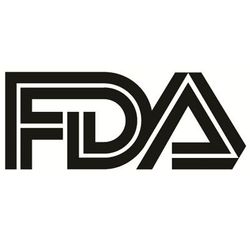
OR WAIT null SECS
Mirum Pharmaceuticals Submits NDA for Chenodiol Tablets in Cerebrotendinous Xanthomatosis
Mirum Pharmaceuticals submitted an NDA for chenodiol tablets to treat CTX based on positive phase 3 RESTORE trial results.
Mirum Pharmaceuticals has announced the submission of a New Drug Application (NDA) for chenodiol tablets the treatment of patients with cerebrotendinous xanthomatosis (CTX).1
Announced on June 28, 2024, the submission is based on data from the phase 3 RESTORE trial, which examined use in adults with CTX and achieved its primary endpoint of a statistically significant reduction in bile alcohols.1
“When you have CTX, timely diagnosis and treatment can have a transformative impact on the lives of people living with this disease,” said Jean Pickford, executive director of the CTX Alliance.1 “We were excited about the RESTORE data and are hopeful that the chenodiol submission to the FDA will result in an approval, enabling faster access to treatment and helping patients and their families earlier in their disease journey."
A rare autosomal genetic progressive disorder of cholesterol metabolism caused by an abnormality in the CYP27A1 gene, CTX has no therapies indicated for use in the US. However, as is noted by Mirum Pharmaceuticals, chenodiol carries a medical necessity determination in the US by the FDA. The announcement of the NDA submission from Mirum Pharmaceuticals comes less than a year after announcing positive results from the phase 3 RESTORE trial in October 2023. The trial was launched in 2020 and designed to assess the effects of chenodiol 250 mg administered 3 times daily. The trial enrolled 13 adult patients with CTX.1,2
The study included a 4-week screening period, 4 treatment periods totaling 6 months, and a follow-up phone call 30 days after the final dose was administered. The 4 treatment periods in the study including an 8-week open-label chenodiol period, a 4-week randomized withdrawal period where patients received placebo or chenodiol, a second 8-week open-label chenodiol period for all patients, and a second 4-week randomized withdrawal period where patients received the alternate treatment to first withdrawal period.1,2
The trial’s primary outcome of interest, which was assessed at the end of each double-blind period, was the reduction in bile alcohols (urine 23S-pentol).1,2
Results of the primary outcome analysis suggested use of chenodiol was associated with a 20-fold (95% CI, 10.3 to 43.5; P <.0001) difference in change relative to placebo. Data from the secondary outcomes analysis of the trial suggested use was associated with a 2.8-fold (95% CI, 31.6 to 86.1; P = .0083) difference in change of plasma cholesterol and a 50-fold (95% CI, 25.0 to 66.7; P <.0001) difference in change of plasma 7αC4 ng/mL.1,2
Safety analyses of the trial found the most commonly reported adverse events observed with chenodiol were diarrhea and he ache, which were reported by 5 and 3 participants, respectively.1,2
“Following the landmark RESTORE data, we are excited about the potential to have an approved treatment option that may reduce the progressive symptoms associated with this rare disease,” said Chris Peetz, chief executive officer at Mirum Pharmaceuticals.1 “If approved, chenodiol would be the first and only medication approved to treat patients with CTX, enabling earlier diagnosis and treatment of these life-altering symptoms.”
References:
- Mirum Pharmaceuticals. Mirum Submits New Drug Application to FDA for Chenodiol for the Treatment of CTX. Mirum Pharmaceuticals. June 28, 2024. Accessed June 28, 2024. https://ir.mirumpharma.com/news-events/News/news-details/2024/Mirum-Submits-New-Drug-Application-to-FDA-for-Chenodiol-for-the-Treatment-of-CTX/default.aspx.
- Mirum Pharmaceuticals. Mirum Pharmaceuticals announces Positive phase 3 restore study results evaluating Chenodal in patients with cerebrotendinous xanthomatosis. Mirum Pharmaceuticals. October 2, 2023. Accessed June 28, 2024. https://ir.mirumpharma.com/news-events/News/news-details/2023/Mirum-Pharmaceuticals-Announces-Positive-Phase-3-RESTORE-Study-Results-Evaluating-Chenodal-in-Patients-with-Cerebrotendinous-Xanthomatosis/default.aspx.


